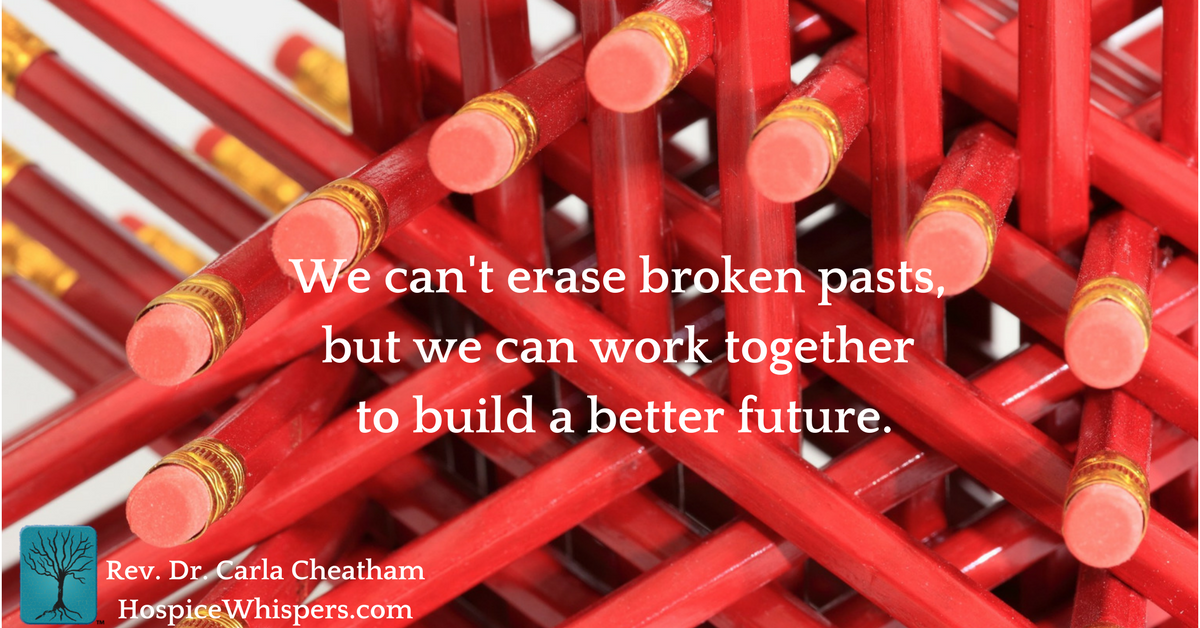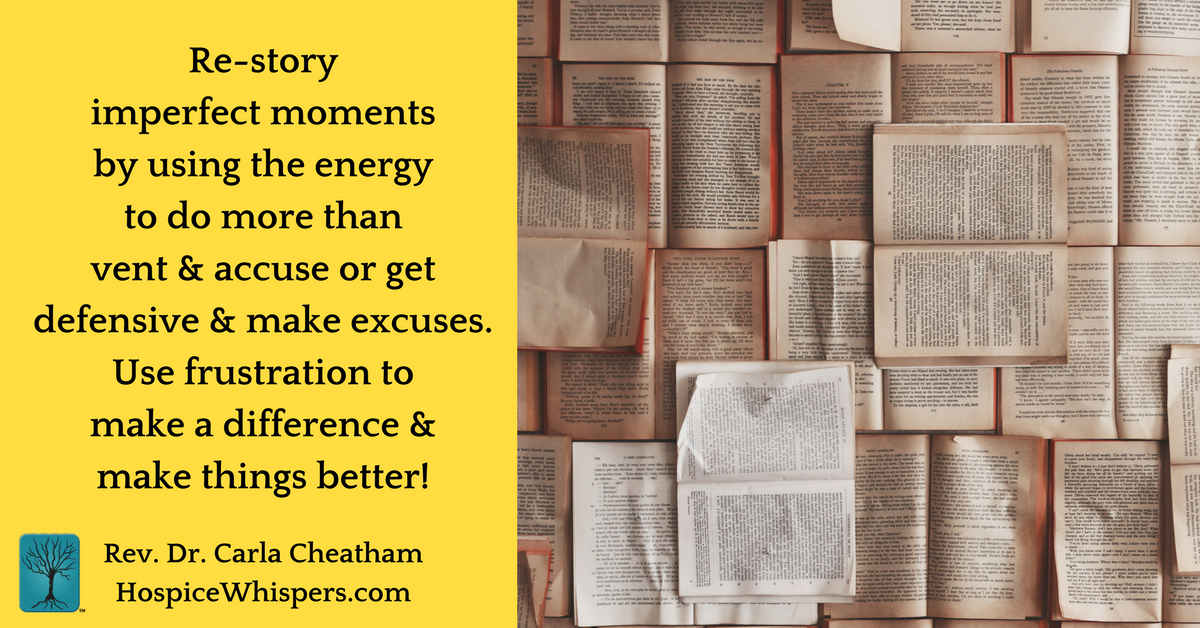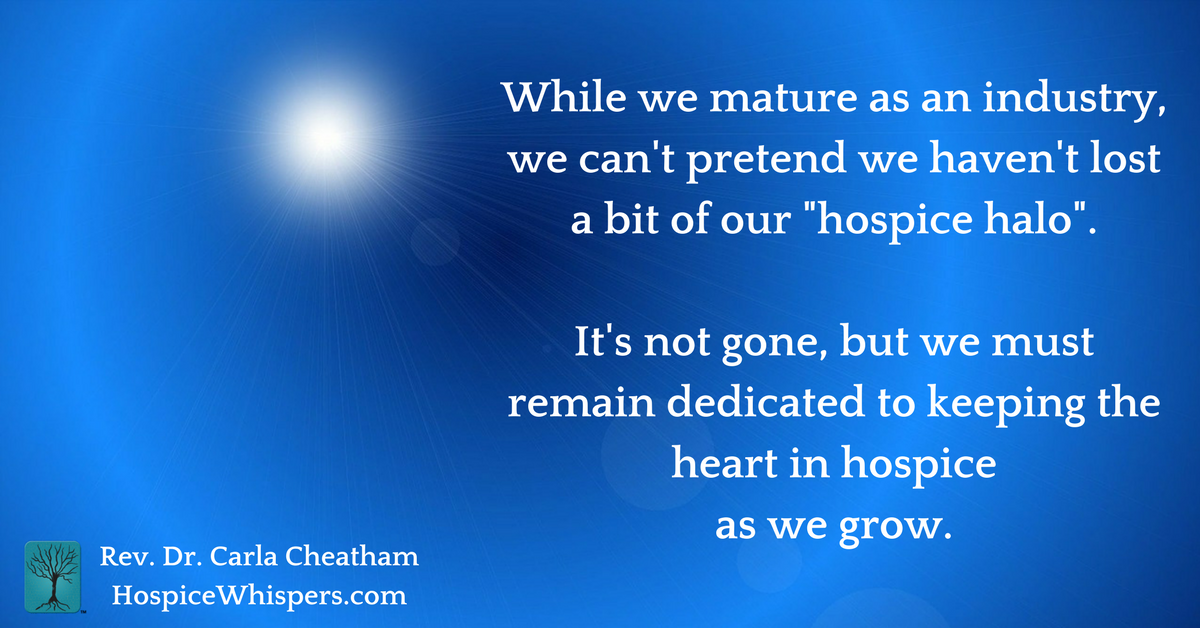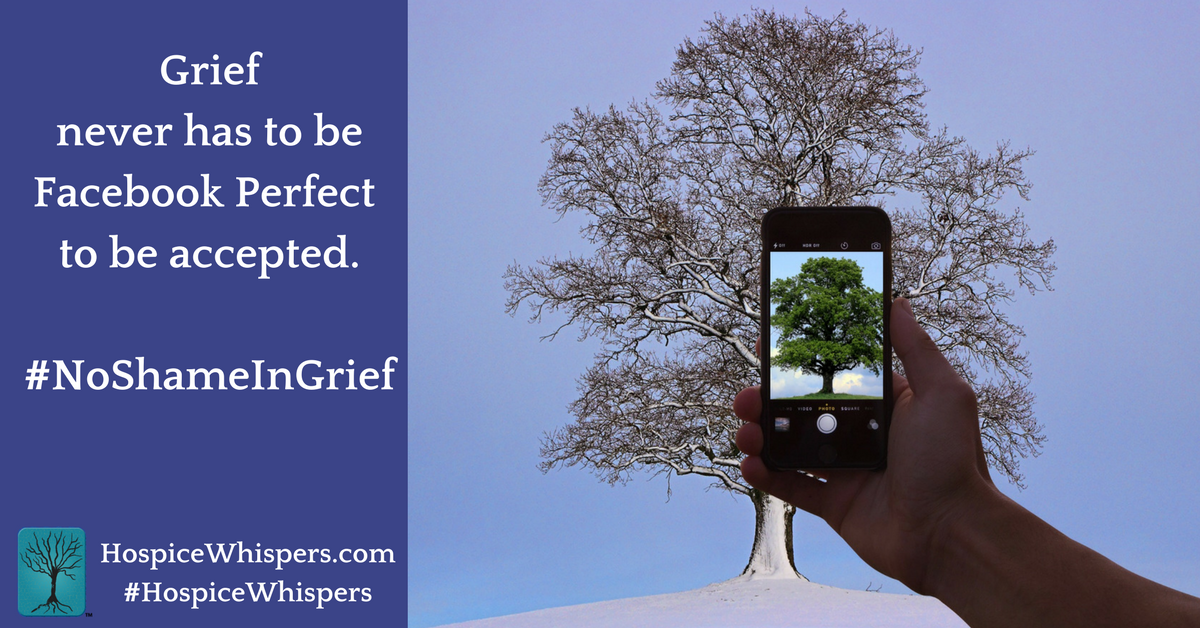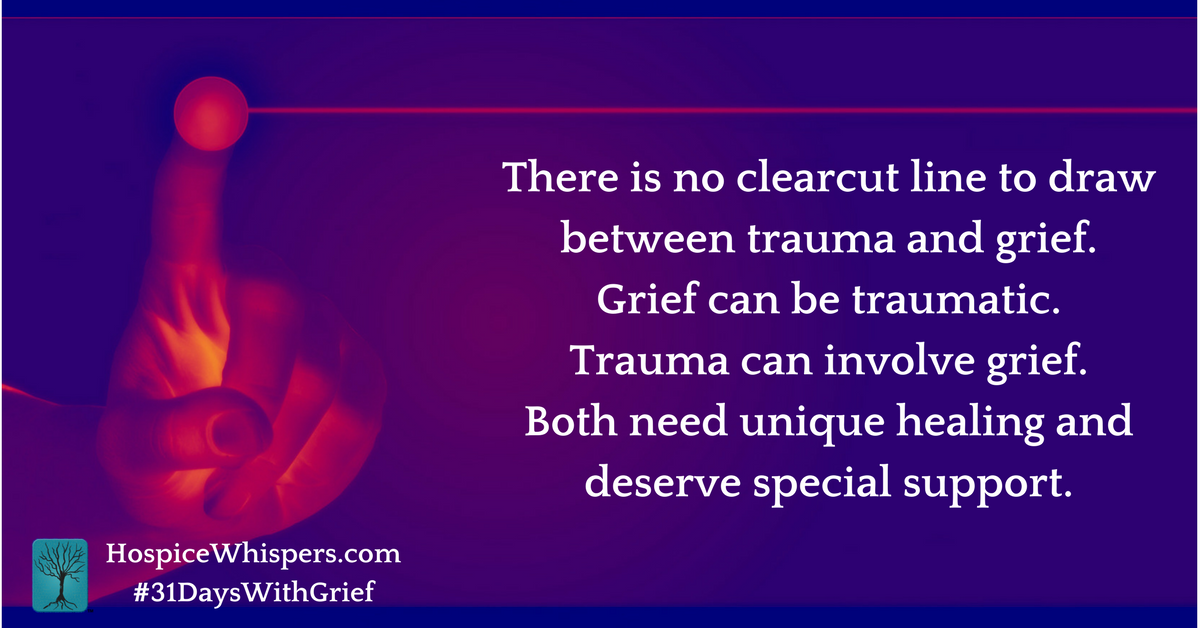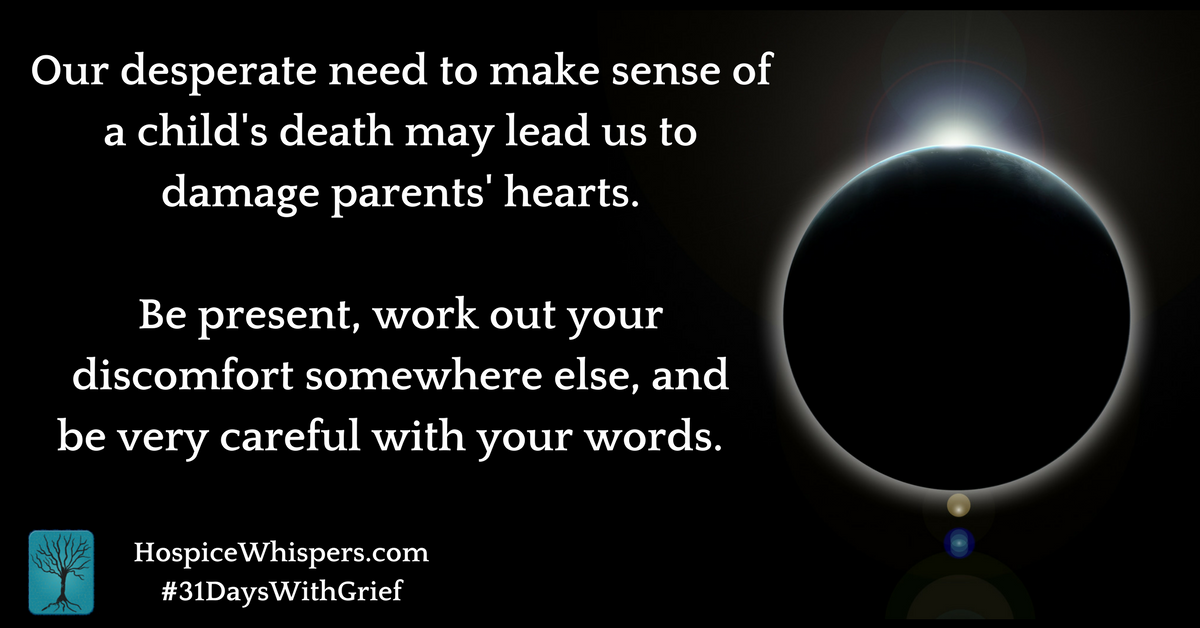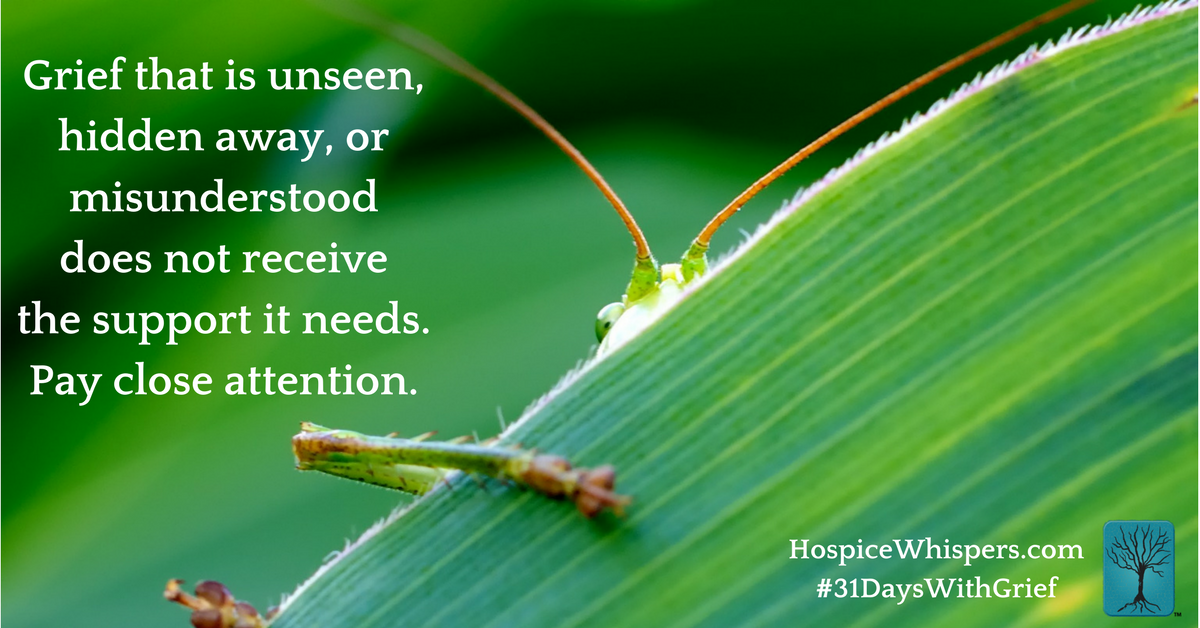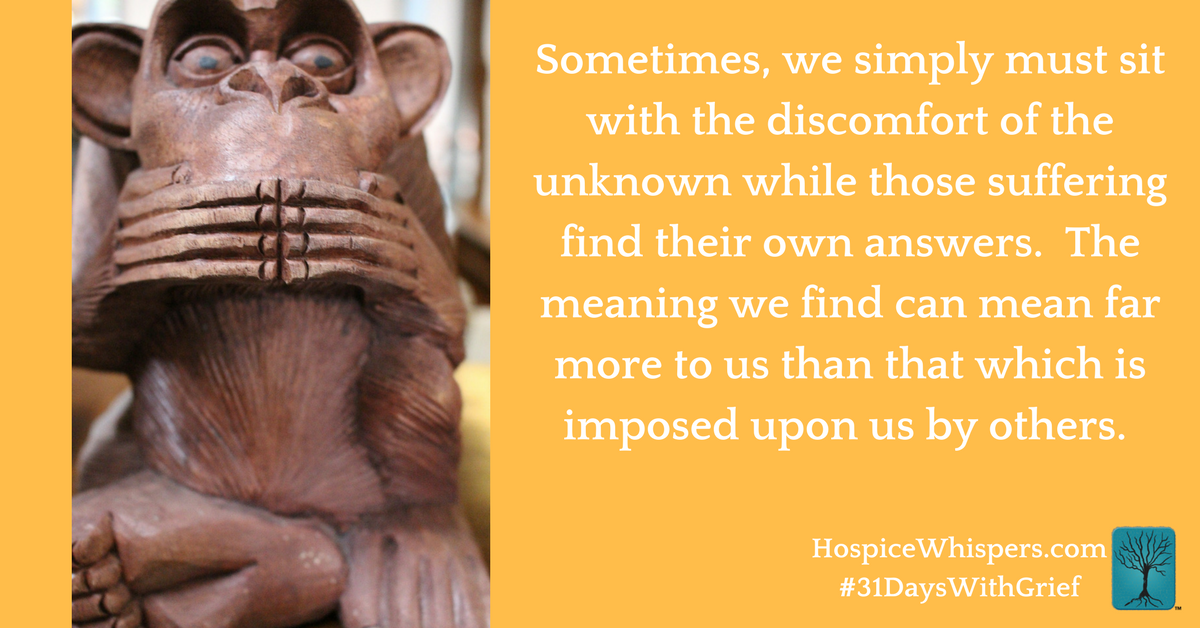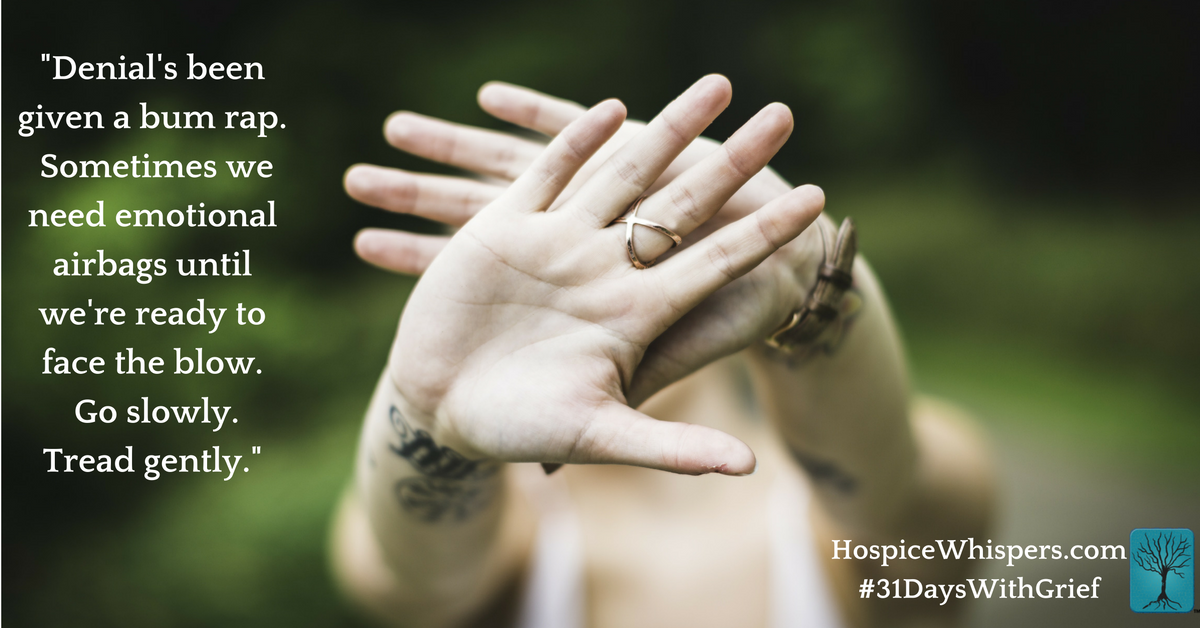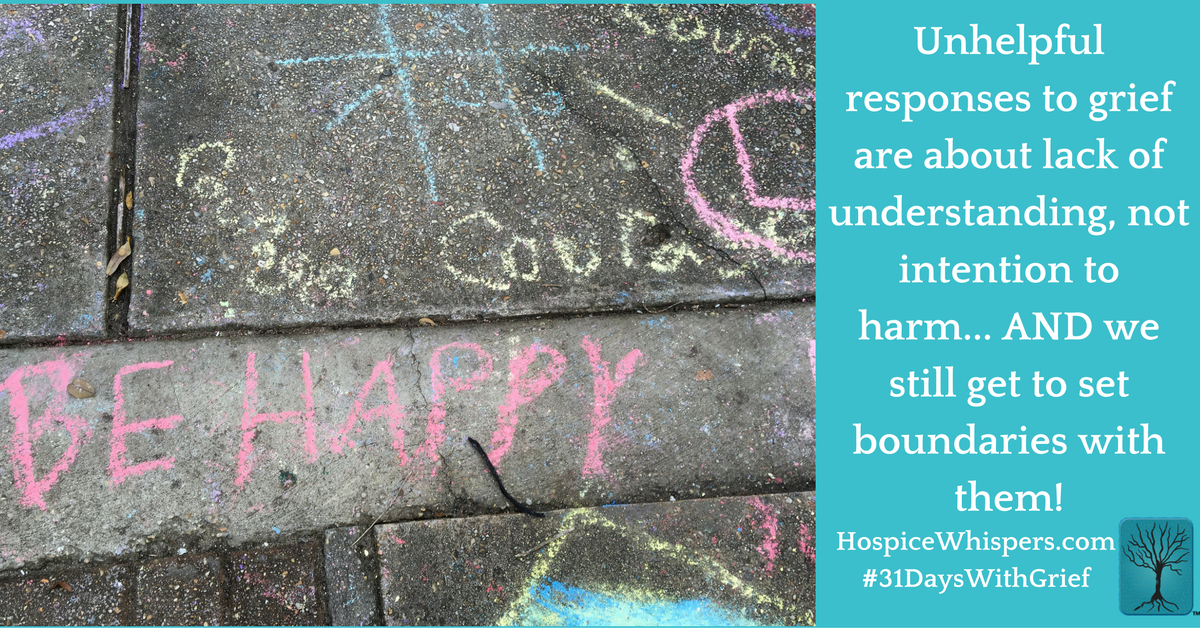As hospice and palliative care matures as a field, we will naturally face growing pains, which can be traumatic for the patients and families who fall through our cracks. In this 3-part series on Changing the Narrative Around “Bad Deaths”, I’ll look at some of the issues, how we can respond, and how professionals and lay persons can all work to make a difference.
Part 3–Re-Storying for a Better Future of Care
In the second post in this series, I wrote about a call to action and advocacy as a way of re-storying a better ending for anyone receiving end of life care, and those who love them.
We may not have a second chance to get a person’s death right, but we can pick up, dust off, and work like hell to protect a good death for the next person.
There are organizations that devote all their time and resources to exactly these causes. There are tools and tips for raising awareness, having your own conversations, encouraging and helping others to do so, and raising cain on the Hill to protect quality healthcare. Below I’ve listed and linked to a sampling. I would love for you to comment with others of which you are aware and most trust.
Sign up to receive legislative alerts and talking points from the Hospice Action Network, a part of the National Hospice and Palliative Care Organization. I know these folks and work with them through my role as the section leader for the Spiritual Caregivers Section of NHPCO. They’re incredible, heart-driven professionals and I trust them completely.
NHPCO’s Moments of Life awareness-raising campaign has videos that demonstrate what quality care can look like and the site also has resources to support better understanding and conversations around the end of life.
Engage in and support World Hospice and Palliative Care Day that takes place each year with a different theme and highlights the needs of persons around the world and what is being and can be done to improve things for all humans on the planet.
Make plans now to take part in and support National Healthcare Decisions Day (NHDD) held the week of April 16-22 this year. The website has kits and resources for taking part in the week-long event for you or your organization.
For my part, I’ll be making my book Hospice Whispers: Stories of Life available as a free download during portions of that NHDD week to help folks better understand hospice and the end of life and not be so afraid of it or the conversations around it. (You can sign up for my newsletter to be alerted when such offers are happening using the form on the right hand side under “Subscribe”.)
Don’t want to wait? The eBook version of Hospice Whispers: Stories of Life is only $4.99. Get yours now and start reading immediately!
The AARP is clear that they stand on principle, not politics, as they advocate for Medicare and other healthcare benefits. Join their advocacy efforts. They also have great resources for better understanding when it’s time for hospice and how to have those important conversations with loved ones and your doctor.
The Conversation Project has a ton of resources for getting communities of faith and even whole cities talking about wishes around end of life care and advance directives. Bring this well-organized program to your area. I’m currently helping organize a coalition to bring The Conversation Project to Austin, Texas, and it’s exciting!
Get a packet (or 20!) of the Go Wish Cards, designed to help people talk about what’s most important to them at the end of life. Do you want to maintain your sense of humor, have caregivers of the same gender, have your pets around? This game will help you get clear and communicate those wishes to your care providers and loved ones, even well before they need to know (which is the point, since we never know when that will be).
Also get the My Gift of Grace game (soon to be re-released as Hello!). This game goes even further in helping friends, family, and strangers think and talk through what music we want in our final days, what 5-word epitaph we want, what 3 non-medical things our care team should know about us, and much more.
My 3 non-medical things are 1) My friends are my chosen family, treat them as such 2) my border collies belong on my bed, you don’t, unless you ask and I extend an invitation, 3) include me in all decisions and never speak over or down to me, and I cheated and added a #4) scotch and cigars will be part of my treatment plan 😉
There’s so much that can be done; so many ways that each of us can work to decrease the risk of end of life nightmares from happening. None of us want them. We all want to stop them.
When we can be angry, but use the energy of that anger to make positive changes, THEN we make a difference and do more than just vent, blame, and accuse.
There is no us and them in this conversation, when you think about it. We’re all going to die. The question remains what kind of death we each will have. With proper education, legislative support, funding, professional training, manageable caseload sizes, and other meaningful measures in place, we have much greater opportunities to get every person’s end of life right, for all our sakes.
For what it’s worth.
Peace,
Carla
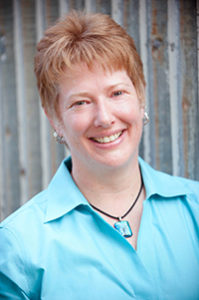 Rev. Carla Cheatham, MA, MDiv, PhD, TRT has served hospices as a chaplain and bereavement coordinator. She’s the Section Leader for the Spiritual Caregivers Section of the National Hospice and Palliative Care Organization and an adjunct professor at the Seminary of the Southwest. Through her Carla Cheatham Consulting Group, Carla provides training and consulting for professional caregivers nationwide. She is the author of Hospice Whispers: Stories of Life and its companion volume, Sharing Our Stories: A Hospice Whispers Grief Support Workbook. Her next book, On Showing Up with Suffering: Others’ and Our Own, is set to publish in 2017.
Rev. Carla Cheatham, MA, MDiv, PhD, TRT has served hospices as a chaplain and bereavement coordinator. She’s the Section Leader for the Spiritual Caregivers Section of the National Hospice and Palliative Care Organization and an adjunct professor at the Seminary of the Southwest. Through her Carla Cheatham Consulting Group, Carla provides training and consulting for professional caregivers nationwide. She is the author of Hospice Whispers: Stories of Life and its companion volume, Sharing Our Stories: A Hospice Whispers Grief Support Workbook. Her next book, On Showing Up with Suffering: Others’ and Our Own, is set to publish in 2017.

